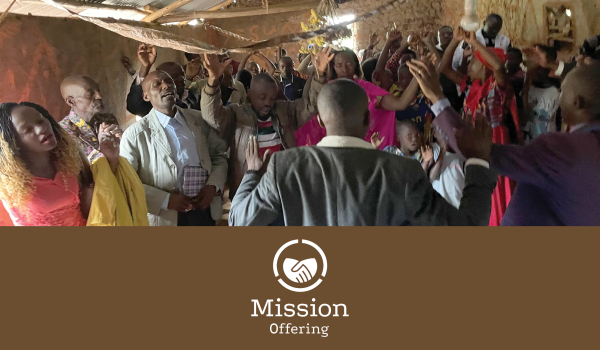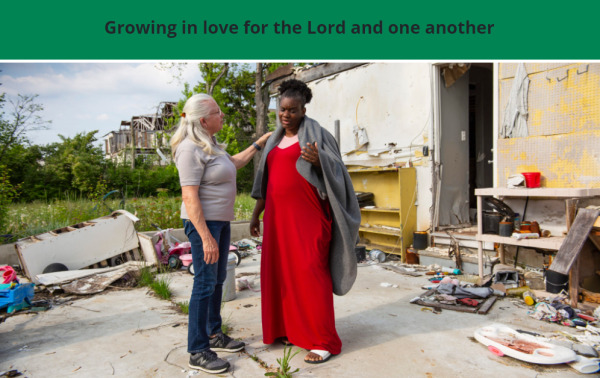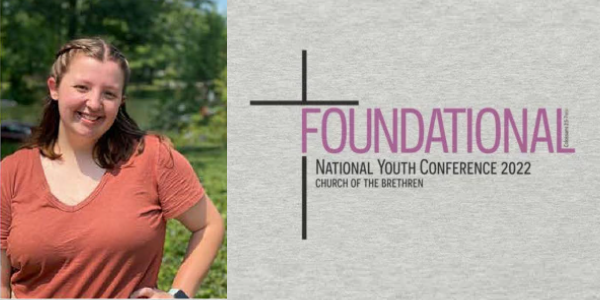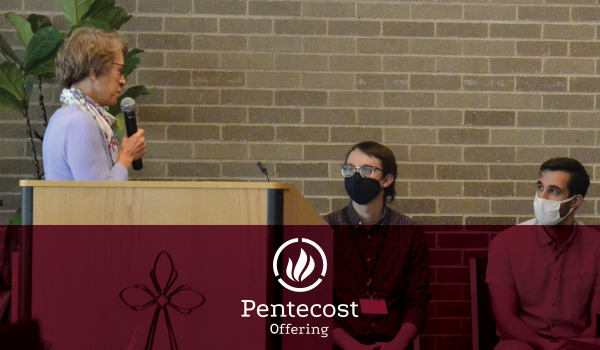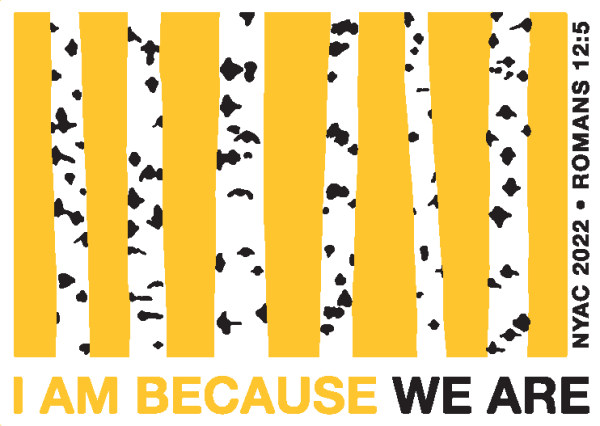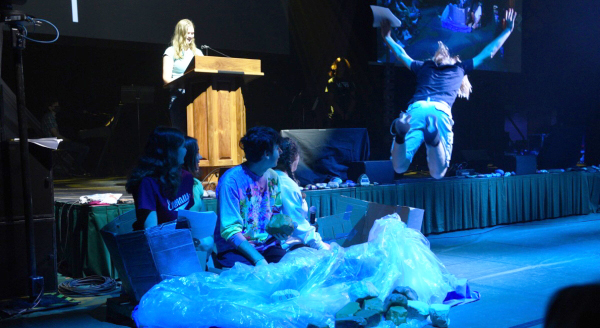
Photo by Glenn Riegel
By Erika Clary, serving through Brethren Volunteer Service as the 2022 National Youth Conference coordinator with Youth and Young Adult Ministries
Over the last year, I coordinated National Youth Conference (NYC), which took place at the end of July.
I would like to thank Church of the Brethren staff, volunteers, members, and supporters for your encouragement over the last year. Thank you especially to those who worked behind the scenes to make NYC a success. I’m sure many times as staff or even as advisors, planning this event may have felt thankless, so I want to explicitly say right now–thank you so much. NYC takes more than just a village; it takes a whole metropolitan area.
It feels almost impossible to sum up all the emotions that arose from NYC. The one thing that has consistently come to mind is a feeling of unwavering hope. Time and time again throughout the week, the youth showed why we should have no problem entrusting them with the church.
One thing the worship team was adamant about this year was youth involvement. We initially struggled to assemble the NYC band, but this challenge ended up being a perfect opportunity to ask youth to participate. Through singing and the playing of a variety of instruments (viola, flute, drums, guitar, and more), the youth showed courage and extraordinary leadership. They also brought their gifts of reading liturgy and acting in scripture dramas. We saw youth literally jumping out of the boat (as seen in the photo above).
One thing about these youth that has given me so much hope is how they simply showed up. Youth groups struggled to fundraise and hadn’t spent imperative time together in community because of the pandemic. They could have remained scattered and their minds could have been drawn to so many other things, but they still chose to show up. And they didn’t just show up to NYC itself or to play in the band or read liturgy like I talked about; they showed up for one another.
Youth cheered on their friends who played in the band or read liturgy, and they held each other tight after being anointed. They sat with one another in small groups, and shared meals in the dining halls. Amid the stress and anxiety that went into planning NYC over the last year, the fact that the youth showed up and showed up for one another reminded me why I did this job in the first place.
One of the things that strengthened my unwavering sense of hope was the youth speech contest winners. The theme of this year’s youth speech contest was “Bring Your Own Jesus Story.” The worship coordinators asked youth to consider how Jesus is foundational to their lives, pick a story about Jesus that relates to their story, and then preach on it. Kara Bidgood Enders talked about the story of the Good Samaritan, Hannah Smith talked about Jesus calming the storm, and finally, Anna Schweitzer related to the story about Jesus healing the blind man.
I remember watching their video submissions months ago and sitting in my office crying because of how vulnerable and wise those young women were. They weren’t just representing themselves, they were representing their peers, too. The three young women talked about being neighborly, about crying out to Jesus in waves of depression and anxiety, and about doing good things for people without hoping for any credit. Their words inspired not just the youth, but everyone in attendance. They definitely inspired me. It wasn’t that long ago that I was their age, and I can’t imagine going on stage in front of 900 people and being that vulnerable. And yet, they did it. They showed up. And they gave us hope.
There are many lessons I’ve learned in the last year, but one of them is that we need to simply learn to pass the microphone to the youth. They are strong, fearless, and adaptable, and always lift each other up. Though the verses may be familiar, 1 Timothy 4:12-14 is worth repeating. I like how the Message translation says it best: “Get the word out. Teach all these things. And don’t let anyone put you down because you’re young. Teach believers with your life: by word, by demeanor, by love, by faith, by integrity. Stay at your post reading Scripture, giving counsel, teaching. And that special gift of ministry you were given when the leaders of the church laid hands on you and prayed–keep that dusted off and in use.” If I had to sum up the hope the youth at NYC made me feel, it would be through these verses. They are teaching with their lives. I know they are teaching me.
We need to give our youth space to show up, to pass them the microphone, to listen to their stories, and to show up for them the same way they show up for us. They are the future, after all.
In closing, I want to share a sending that Cindy Laprade Lattimer, one of our worship coordinators, wrote for the NYC worship that the youth speech contest winners, after sharing their speeches, proclaimed together (as seen below). I teared up when I heard it.
We are all made of stories. Go and embrace God’s story by loving others, no matter the circumstance. Go and live your story, knowing that you are never alone, whatever storms arise. Go and share the story, doing the unexpected and acting neighborly. Amen.
Learn more about the 2022 National Youth Conference at www.brethren.org/nyc or support Youth and Young Adult Ministries today at www.brethren.org/giveyya.
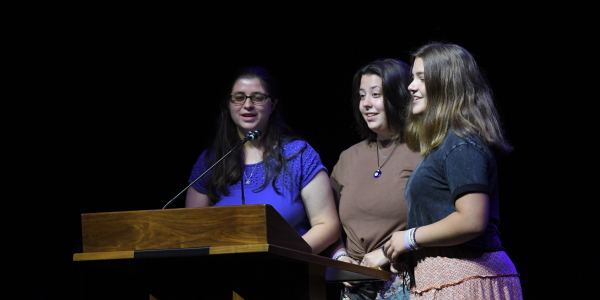
Photo by Glenn Riegel


